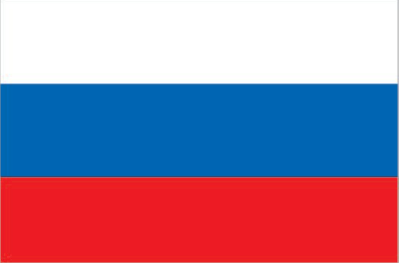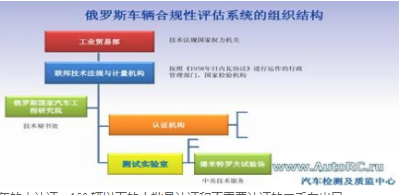
The market access management of automotive products in Russia mainly adopts the mode of vehicle type approval. The specific implementation form is the Russian vehicle OTTC certification. OTTC is the abbreviation of the Russian phrase "Одобрение типа транспортного средства", which means the type certification of complete vehicles. Obtaining an OTTC certificate is a prerequisite for vehicle products to enter the Russian market and get the vehicles registered and licensed.





OTTC Certification of Vehicle Products in Russia
(1) Covering letter and letter of guarantee;
(2) Application form and application for product safety statement;
(3) Quality management system certificate or a statement on production conditions ensuring that the vehicle performance and indicators comply with safety and environmental protection requirements;
(4) International Manufacturer Identifier (WMI) and product classification code;
(5) Technical specifications and user guide;
(6) Business registration certificate and address of the applying enterprise;
(7) Factory test or certification test report, etc.;
(8) Existing ECE certification certificate or GOST-R certificate of the vehicle.
The government authority responsible for the market access management of automotive products in Russia is: the Federal Agency for Technical Regulation and Metrology of the Russian Federation, and its Russian name is: Федеральное агентство по техническому регулированию и метрологии.

2. Certification Procedures for Automotive Products in Russia
For new vehicles, different management mechanisms are implemented according to different vehicle import quantities, including the certification for large quantities and the certification for relatively low quantities (small batches).
a) Basic Procedures for the Certification of Large Quantities of Vehicles
The applicant should first clarify the type of the vehicle to be certified and the standards it should meet, draw up a brief technical description, and submit an application to the certification body. Within 15 days after receiving the application, the certification body shall make a decision on whether to agree to conduct the certification. If it agrees, the applicant should provide the required number of prototype vehicles to the laboratory. After confirming the integrity and accuracy of the technical description and proving that the provided prototype vehicles conform to the technical description, the laboratory accepting the application will start the certification test. If necessary, the manufacturer may also be invited to participate. If the test is passed, the laboratory will transfer the test report issued by it and the technical description certified by it to the certification body or the applicant, and then the certification body will make a decision to issue a Russian certificate of conformity to the applicant, or the administrative organ will make a decision to issue the "Notice of Official Confirmation of Vehicle Structure Type" according to the ECE regulations of the United Nations Economic Commission for Europe. Generally, the validity period of the certificate of conformity does not exceed three years. If the certification body agrees to extend its validity period, a new certificate of conformity with a validity period of three years will be issued.
b) Special Certification Procedures for Small-Batch Imported Vehicles
Small-batch imported vehicles refer to the specified quantity of vehicles of one category and one model transported into the territory of Russia by foreign manufacturers through the supplier network within a calendar year. The mandatory technical requirements for small-batch imported vehicles are relatively lenient. The "Vehicle Type Approval Certificate" issued for the applied series (batch) of vehicles is a document proving the structural safety of the vehicles.







